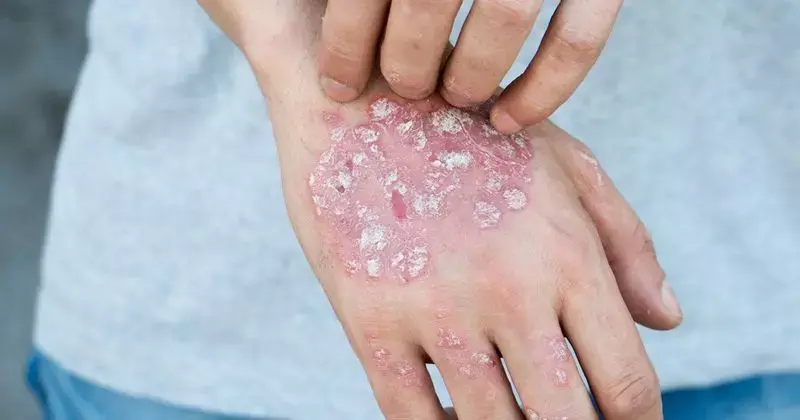- Home
- Medical news & Guidelines
- Anesthesiology
- Cardiology and CTVS
- Critical Care
- Dentistry
- Dermatology
- Diabetes and Endocrinology
- ENT
- Gastroenterology
- Medicine
- Nephrology
- Neurology
- Obstretics-Gynaecology
- Oncology
- Ophthalmology
- Orthopaedics
- Pediatrics-Neonatology
- Psychiatry
- Pulmonology
- Radiology
- Surgery
- Urology
- Laboratory Medicine
- Diet
- Nursing
- Paramedical
- Physiotherapy
- Health news
- Fact Check
- Bone Health Fact Check
- Brain Health Fact Check
- Cancer Related Fact Check
- Child Care Fact Check
- Dental and oral health fact check
- Diabetes and metabolic health fact check
- Diet and Nutrition Fact Check
- Eye and ENT Care Fact Check
- Fitness fact check
- Gut health fact check
- Heart health fact check
- Kidney health fact check
- Medical education fact check
- Men's health fact check
- Respiratory fact check
- Skin and hair care fact check
- Vaccine and Immunization fact check
- Women's health fact check
- AYUSH
- State News
- Andaman and Nicobar Islands
- Andhra Pradesh
- Arunachal Pradesh
- Assam
- Bihar
- Chandigarh
- Chattisgarh
- Dadra and Nagar Haveli
- Daman and Diu
- Delhi
- Goa
- Gujarat
- Haryana
- Himachal Pradesh
- Jammu & Kashmir
- Jharkhand
- Karnataka
- Kerala
- Ladakh
- Lakshadweep
- Madhya Pradesh
- Maharashtra
- Manipur
- Meghalaya
- Mizoram
- Nagaland
- Odisha
- Puducherry
- Punjab
- Rajasthan
- Sikkim
- Tamil Nadu
- Telangana
- Tripura
- Uttar Pradesh
- Uttrakhand
- West Bengal
- Medical Education
- Industry
Anti-interleukin-17 or anti-interleukin-23- Which biologic agent is better for inverse psoriasis?

Researchers have found that long-term anti-IL-23 therapies yield better outcomes for individuals with inverse psoriasis (IP) compared to IL-17 inhibitors, according to a recent study. This study highlights the challenges in defining IP and developing a clear therapeutic strategy for this psoriasis subtype. This study was published in the International Journal Of Dermatology by Mastorino and colleagues.
Inverse psoriasis is a less understood subtype of psoriasis, characterized by lesions in intertriginous areas such as the inguinal, axillary, and breast folds. Current biologic treatments, particularly IL-17 and IL-23 inhibitors, show varying efficacy in treating different forms of psoriasis. However, the response to these treatments in IP patients has not been well-documented.
The research team, led by Luca Mastorino from the University of Turin, conducted a retrospective analysis of patients with psoriasis treated with IL-17 or IL-23 inhibitors at the Dermatology Clinic of Turin University Hospital from January 2017 to September 2022. The study aimed to evaluate the effectiveness of these treatments in IP patients compared to those with psoriasis vulgaris.
Patients were classified as having IP if they had disease involvement in regions such as the inguinal, axillary, breast folds, submammary lines, intergluteal fold, antecubital and popliteal pits, and perianal area. Psoriasis vulgaris patients with concurrent intertriginous involvement were also included. Effectiveness was assessed using the Psoriasis Area and Severity Index (PASI).
The study included a higher proportion of females in the IP group. These patients were more commonly treated with IL-17 inhibitors and had a higher rate of treatment discontinuation and alterations (32.1% vs. 18.1%, P=0.002).
IP patients treated with IL-17 inhibitors showed slower progression to PASI100 and PASI90 compared to those with psoriasis vulgaris. These patients also had increased joint involvement and a lower median age of onset (P=0.011).
Despite slower initial responses, patients on anti-IL-23 therapies showed progressively better outcomes over time compared to those on IL-17 inhibitors.
IP patients on anti-IL-23 medications began treatment with a lower mean PASI and showed a slower rate of response initially compared to those on anti-IL-17 treatments.
The findings suggest that while IL-17 inhibitors may offer a faster onset of action, IL-23 inhibitors provide superior long-term efficacy for treating inverse psoriasis. The study underscores the need for more targeted research and a defined therapeutic strategy for IP patients.
Researchers have found that long-term anti-IL-23 therapies are more effective than IL-17 inhibitors for individuals with inverse psoriasis. This study contributes valuable insights into the management of IP, highlighting the need for a clearer therapeutic strategy and more comprehensive research to guide treatment decisions.
Reference:
Mastorino L, Dapavo P, Ribero S, et al. Clinical characteristics and response to biological therapies for inverse psoriasis: a real-life comparison between the therapeutic effects of anti-IL-23 and anti-IL-17 agents. Int J Dermatol. 2024 May 15. doi: 10.1111/ijd.17252. Epub ahead of print. PMID: 38751026.
Dr Riya Dave has completed dentistry from Gujarat University in 2022. She is a dentist and accomplished medical and scientific writer known for her commitment to bridging the gap between clinical expertise and accessible healthcare information. She has been actively involved in writing blogs related to health and wellness.
Dr Kamal Kant Kohli-MBBS, DTCD- a chest specialist with more than 30 years of practice and a flair for writing clinical articles, Dr Kamal Kant Kohli joined Medical Dialogues as a Chief Editor of Medical News. Besides writing articles, as an editor, he proofreads and verifies all the medical content published on Medical Dialogues including those coming from journals, studies,medical conferences,guidelines etc. Email: drkohli@medicaldialogues.in. Contact no. 011-43720751


